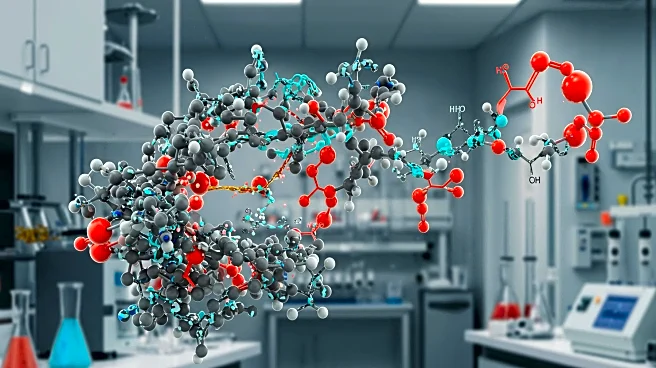What is the story about?
What's Happening?
Research has identified NLRP12 as a key regulator in gastric cancer, influencing glycolysis and tumor growth. NLRP12 decreases TRIM25-mediated degradation of HK2, promoting glycolysis and histone modification H3K18la. This mechanism supports cancer cell proliferation and survival. The study involved analysis of gastric cancer tissues and cell lines, revealing NLRP12's impact on metabolic pathways and tumor progression.
Why It's Important?
Understanding NLRP12's role in gastric cancer is crucial for developing targeted therapies. By promoting glycolysis, NLRP12 supports cancer cell energy production, contributing to tumor growth. This insight could lead to new treatments that inhibit NLRP12's activity, potentially reducing cancer proliferation. The findings also highlight the importance of metabolic regulation in cancer development, offering a pathway for therapeutic intervention.
What's Next?
Future research may focus on developing inhibitors targeting NLRP12 to disrupt its role in glycolysis and tumor growth. Clinical trials could explore the efficacy of such treatments in reducing gastric cancer progression. Additionally, further studies may investigate NLRP12's involvement in other cancer types, broadening the scope of potential therapies.
Beyond the Headlines
The study underscores the complex interplay between immune system components and cancer metabolism. NLRP12's dual role in inflammation and cancer highlights the need for a nuanced approach to treatment, balancing immune regulation with cancer inhibition. This research may also influence broader cancer treatment strategies, integrating metabolic and immune system targets.
















